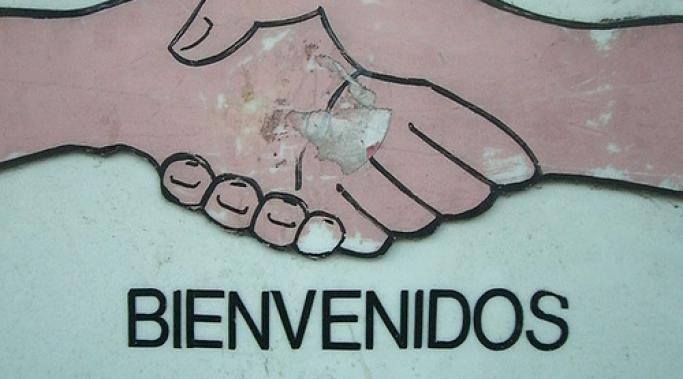While not everyone with Dissociative Identity Disorder also has a diagnosable depressive disorder, I’d wager at least 50% live regularly with some type of depression. As for me, I have Major Depression and Dysthymia. The former is a real pain; the latter is far more manageable. I’ve never taken either one very seriously and I think the magnetic relationship between dissociation and depression is the primary reason why.
Living with DID
While not everyone with dissociative identity disorder also has a depressive disorder, I’d wager at least 50% live regularly with some type of depression. As for me, I have major depression and dysthymia. The former is a real pain; the latter is far more manageable. I’ve never taken either one very seriously and I think the magnetic relationship between dissociation and depression is the primary reason why.
How many times have those of you with Dissociative Identity Disorder drawn a boundary of some kind and later felt awash in guilt and anxiety? If you're like me, the answer is "just slightly less than always." And it's not just those of us with DID that struggle with boundary setting. That backlash of guilt and anxiety isn't unique to Dissociative Identity Disorder. But I suspect the path to resolving it might be.
Managing the self-sabotaging behaviors that make life with Dissociative Identity Disorder so difficult doesn't mean getting rid of them. It means learning to live with them; recognizing and investing in the opportunities for growth inherent in self-sabotage. For me, that requires (1) acceptance of those behaviors, no matter how repugnant, (2) honest communication devoid of the power struggle that characterizes instinctual responses to self-sabotage, and (3) welcoming compromises that allow me to keep moving. When I discovered an alter was blocking internal communication, I was surprised to learn that all three of those things are possible. But it was the compromise that amazed me the most, and ultimately changed my life.
I define self-sabotaging behaviors within Dissociative Identity Disorder as any thought, feeling, or action by any member of the system that actively impedes the intentions and goals of any other member of the system. Self-sabotage, by my definition, is a regular part of life with DID. And what most of us do when an alter disrupts our lives in some way is attempt to change the disruptive behavior. It makes sense, but it's counter-productive. Before you know it, you're entrenched in a power struggle that ultimately solves nothing. Without even realizing it, I engaged in a power struggle for years with an alter who effectively blocked all internal communication. Once I became aware of the situation, I stopped trying to change it. I now believe acceptance is the first step in managing self-sabotaging behaviors. And communication, I think, is the second.
Remember when I said I didn't know what to do about mental health warning signs when they flare up? The past two weeks of my life painfully demonstrate the consequences of that ignorance, along with some of the ugly truths about dissociative identity disorder. I knew my mental health was deteriorating. I was talking about it, writing about it, and actively looking for solutions. I saw the edge of the cliff and did everything I could not to fall. But fall I did.
Self-sabotage is hard for anyone to deal with. But I think managing self-sabotaging behaviors when you have Dissociative Identity Disorder is more difficult. So when I say that I think doing so is a matter of acceptance, communication, and compromise, I don't mean to over-simplify the monumental challenge that it is. Accepting things that directly impact your life in negative, destructive ways is frightening to say the least. But the most life changing negotiation with an alter I've ever had wouldn't have happened if I hadn't done exactly that.
You really want to lose weight but you keep stocking your pantry with junk food, "for the kids." This is self-sabotage, the frustrating outcome of conflicting conscious and subconscious desires. If you have Dissociative Identity Disorder, self-sabotage is more complex. Alters have the ability to A) assume control of the mind and body, and B) exert enough influence to impact the thoughts, feelings, and behaviors of other system members. Add to that the fact that Dissociative Identity Disorder exists in part to compartmentalize conflicting perceptions and it's not surprising that many people with DID experience particularly pervasive and disruptive forms of self-sabotage.
If you have dissociative identity disorder, dissociation is your primary coping mechanism. As such, it's both adaptive and maladaptive. It allows you to continue functioning despite overwhelming stress. But dissociation is also what prevents you from recognizing that you've fallen off a cliff until you hit the ground. The idea behind taking stock of mental health warning signs is to notice your free fall a little sooner. Ideally, you'd eventually have the awareness to see the edge of the cliff from a distance and avoid it altogether.
Living with dissociative identity disorder (DID) presents unique difficulties, whether you're the one that has it or the person who loves the one living with it. I can only imagine how frustrating, confusing, even painful it must sometimes be to have a partner with DID.
I've witnessed how challenging it often is for my own partner and, if some of the comments I've received here at Dissociative Living are in any way representative, her experience is typical. But it's also largely ignored. Partners of people with DID don't get that much support or encouragement, primarily because only those who've been there can truly understand (Caregiver Stress and Compassion Fatigue).









